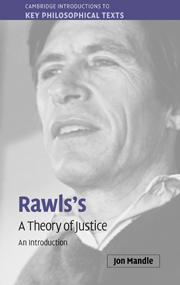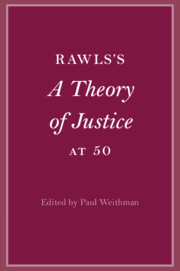Rawls's 'A Theory of Justice'
A Theory of Justice, by John Rawls, is widely regarded as the most important twentieth-century work of Anglo-American political philosophy. It transformed the field by offering a compelling alternative to the dominant utilitarian conception of social justice. The argument for this alternative is, however, complicated and often confusing. In this book Jon Mandle carefully reconstructs Rawls's argument, showing that the most common interpretations of it are often mistaken. For example, Rawls does not endorse welfare-state capitalism, and he is not a 'luck egalitarian' as is widely believed. Mandle also explores the relationship between A Theory of Justice and the developments in Rawls's later work, Political Liberalism, as well as discussing some of the most influential criticisms in the secondary literature. His book will be an invaluable guide for anyone seeking to engage with this ground-breaking philosophical work.
- The chapters correspond to each of the three parts within A Theory of Justice, making it a very accessible introduction to the text
- Provides a response to the main criticisms found in secondary literature, placing the primary material within an academic context
- Explores the relationship to subsequent work to give the reader some knowledge of Rawls's work as a whole
Product details
November 2009Hardback
9780521853927
222 pages
223 × 142 × 15 mm
0.41kg
Available
Table of Contents
- Preface
- 1. Introduction
- 2. Part I of A Theory of Justice - theory
- 3. Part II of A Theory of Justice - institutions
- 4. Part III of A Theory of Justice - ends
- 5. After A Theory of Justice
- 6. Criticisms of A Theory of Justice.








